Top Pre Workout Snacks for Endurance Boost

Before lacing up your shoes or hitting the gym, one critical factor can make or break your workout: nutrition. Specifically, pre workout snacks for endurance can significantly impact how long, hard, and efficiently you train. Whether you’re preparing for a marathon, cycling event, or an intense CrossFit session, the food you eat before your workout serves as your fuel—directly influencing your performance and energy levels.
When it comes to endurance training, your body demands sustained energy over time. Unlike short bursts of strength training, endurance activities require a stable source of energy that won’t burn out quickly. That’s where the right pre workout snacks come into play. These snacks should be designed to provide slow-burning fuel, enhance stamina, and prevent fatigue. Done correctly, pre-workout nutrition can delay the onset of exhaustion, support hydration, and promote better recovery afterward.
But not all snacks are created equal. The ideal pre workout snack is a strategic combination of nutrients tailored to the specific demands of long-duration exercise. This article explores everything you need to know about pre workout snacks for endurance—from what they are, to how they work, and why slow digesting carbs play a vital role in unlocking your full athletic potential.
Let’s dive in.
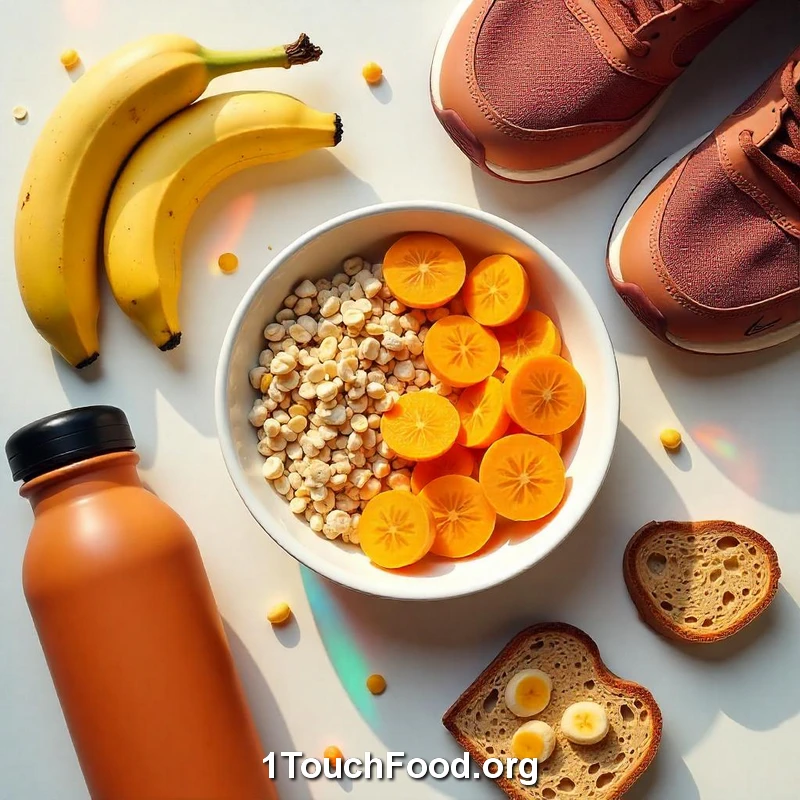
What Are Pre Workout Snacks for Endurance?
Endurance athletes—from long-distance runners to swimmers—know that pre-workout fuel isn’t just a luxury; it’s a necessity. Pre workout snacks for endurance are small, strategically timed meals or snacks that deliver a steady stream of energy to sustain long physical activities.
These snacks are typically consumed 30 minutes to 3 hours before a workout, depending on the intensity and duration of the exercise. The key is balance: the snack must provide enough carbohydrates for energy, a small amount of protein for muscle preservation, and minimal fat or fiber to avoid gastrointestinal discomfort during training.
The primary component of any endurance-focused pre workout snack is carbohydrates. Why? Because carbs are the body’s preferred fuel source during aerobic exercise. They are stored in muscles and the liver as glycogen, which your body breaks down during extended activity. Once glycogen levels deplete, fatigue sets in—and that’s exactly what you want to avoid.
Beyond just carbs, some endurance snacks may also include electrolytes, such as sodium and potassium, especially for workouts that exceed one hour or involve heavy sweating. These helps regulate muscle contractions and prevent cramps.
Popular examples of pre workout snacks for endurance include:
-
A banana with a tablespoon of almond butter
-
Greek yogurt with honey and berries
-
Whole-grain toast with peanut butter and sliced banana
-
Oats with almond milk and raisins
-
A smoothie with oats, berries, and protein

Why Are Pre Workout Snacks So Important for Endurance Training?
Understanding the benefits of pre workout snacks for endurance can transform the way you approach your training regimen. Let’s explore how the right fuel at the right time can elevate your athletic performance.
🏃 Sustained Energy Levels
Endurance activities rely on a continuous supply of energy. Pre workout snacks that incorporate slow-release carbohydrates ensure that your body doesn’t run out of fuel mid-workout. Unlike fast-digesting sugars, these carbs offer a prolonged energy curve—keeping you energized longer and reducing the likelihood of fatigue.
🧠 Improved Mental Focus and Coordination
Endurance isn’t just physical—it’s also mental. Long training sessions demand concentration and mental stamina. The right pre workout nutrition supports stable blood sugar levels, which helps maintain focus, mood, and motor skills throughout the workout.
💪 Muscle Preservation
While carbohydrates are the star of the show, adding a small amount of protein helps preserve muscle tissue, especially during extended cardio workouts. This is crucial for endurance athletes who need both energy and strength to power through long distances or extended sets.
⏱ Enhanced Workout Performance and Duration
Pre workout snacks can extend the time to exhaustion—meaning you can run, bike, or swim longer before fatigue sets in. This is essential for athletes preparing for competitive events or trying to push their personal limits.
💦 Hydration Support
Snacks with water-rich fruits or a pinch of salt (like in peanut butter or lightly salted nuts) can help the body retain fluids and maintain electrolyte balance. This is particularly important for endurance workouts in hot or humid environments.
🛡 Reduced Risk of Injury and Overtraining
Training on an empty stomach increases your risk of early fatigue, poor form, and ultimately injury. A well-balanced pre workout snack helps stabilize energy levels, allowing you to maintain good posture and form throughout the session.
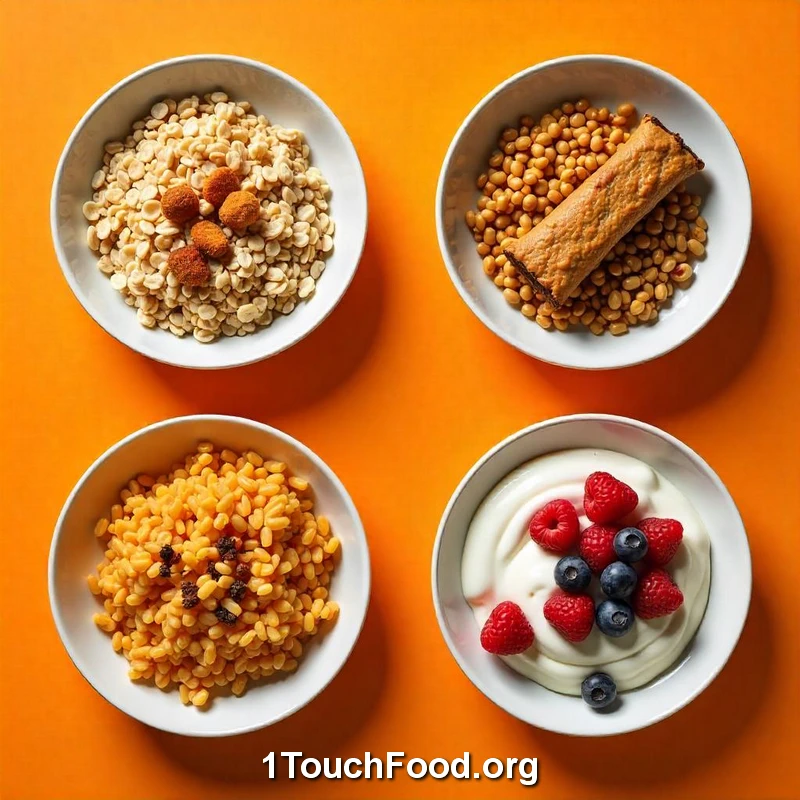
The Role of Slow Digesting Carbs in Pre Workout Snacks for Endurance
When it comes to sustaining energy during long periods of physical activity, not all carbohydrates are equal. One of the most critical components of pre workout snacks for endurance is slow digesting carbs. These carbs break down gradually, providing a consistent supply of glucose to the bloodstream, which helps athletes maintain stamina and avoid the dreaded energy crash.
🔍 What Are Slow Digesting Carbohydrates?
Slow digesting carbohydrates, also known as low-glycemic index (GI) carbs, are types of carbohydrates that take longer to convert into glucose in your body. This slow release helps regulate blood sugar levels and provides a steady stream of energy over a prolonged period. They contrast with fast digesting carbs, which spike blood sugar quickly and may lead to an energy slump mid-workout.
Common examples of slow digesting carbs include:
-
Steel-cut oats
-
Sweet potatoes
-
Quinoa
-
Brown rice
-
Whole grain bread
-
Lentils
-
Legumes
-
Apples and pears
These foods are high in complex carbohydrates and fiber, which slow digestion and extend the energy release. For endurance athletes, this is vital, as it helps delay fatigue and boosts physical output for extended training sessions or competitions.
💡 Why Are Slow Digesting Carbs Essential for Endurance Athletes?
Let’s explore why these slow burners are the foundation of smart endurance nutrition:
🔋 Sustained Energy Supply
Endurance athletes may train or compete for hours. Slow digesting carbs provide a gradual energy release, ensuring your muscles have consistent access to glucose without overloading your system early on.
🧠 Stable Blood Sugar and Mental Focus
Erratic blood sugar levels can cause energy dips, irritability, and reduced focus. Low-GI carbs help stabilize glucose levels, which improves mental clarity, decision-making, and coordination—essential during high-stakes or long-duration workouts.

🏋️ Improved Glycogen Conservation
When slow digesting carbs are used pre-workout, your body tends to conserve muscle glycogen, relying more on circulating glucose. This postpones glycogen depletion, allowing you to train or perform longer before fatigue sets in.
🍽 Better Satiety Without Bloating
Slow carbs tend to be more filling, which can help prevent overeating or hunger pangs during long events. At the same time, they are less likely to cause gastrointestinal distress compared to fatty or sugary snacks.
🧾 Sample Snacks Featuring Slow Digesting Carbs
Here are a few pre workout snacks for endurance that are packed with slow digesting carbs:
-
Oatmeal with almond milk, chia seeds, and a sliced apple
(High in fiber and complex carbs for lasting energy) -
Whole grain toast with mashed avocado and a boiled egg
(Combines carbs, healthy fats, and a bit of protein) -
Sweet potato with Greek yogurt and cinnamon
(Natural sugars and fiber with a protein boost) -
Quinoa salad with chickpeas and olive oil
(Excellent source of complex carbs and plant-based protein)
Be sure to consume these snacks 60 to 90 minutes before your workout to allow for digestion and optimal energy availability.
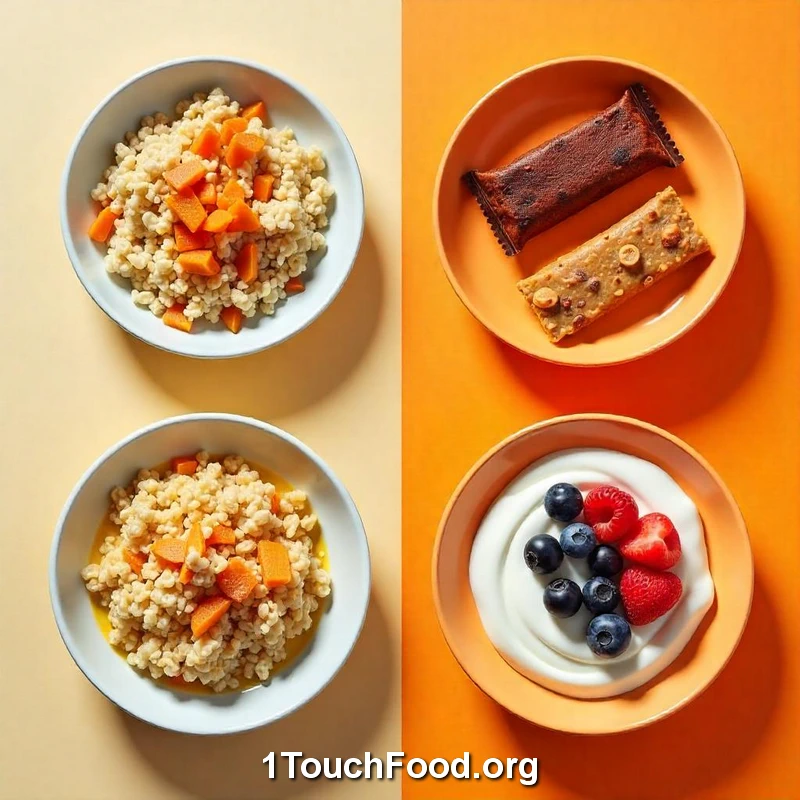
Timing and Composition: Getting Pre Workout Nutrition Right
Even the best snack loses its power if consumed at the wrong time or in the wrong quantity. Knowing how to strategically time and balance your pre workout snacks for endurance is essential to make the most of your training.
⏰ When Should You Eat Pre Workout Snacks for Endurance?
The timing depends on the nature and duration of your workout:
-
2–3 hours before: A complete meal with slow digesting carbs, moderate protein, and low fat (e.g., brown rice with grilled chicken and vegetables).
-
1–1.5 hours before: A snack combining slow digesting carbs and light protein (e.g., oats with a spoon of protein-rich yogurt).
-
30–45 minutes before: A smaller, mostly carbohydrate-based snack (e.g., a banana or a rice cake with a thin layer of nut butter).
Avoid large meals right before endurance training, as digestion can interfere with physical performance and cause discomfort.
⚖️ Macronutrient Balance: Carbs, Protein, and Fats
Though carbohydrates are the primary focus for endurance, a touch of protein can enhance performance by supporting muscle function. However, fat and fiber should be limited before exercise since they slow down digestion and may lead to bloating or cramping.
Ideal Macronutrient Ratio for Pre Workout Snacks:
-
Carbohydrates: 60–70% (preferably from slow digesting sources)
-
Protein: 15–20%
-
Fat: 10–15%
💧 Hydration: The Overlooked Pre Workout Element
Snacks should not be your only focus. Hydration is equally critical. Dehydration—even mild—can reduce endurance and impair performance. Consume at least 500 ml of water 2–3 hours before exercise and another 250–300 ml about 20–30 minutes before starting.
You can also include hydrating snacks like watermelon, cucumber, or smoothies with coconut water for added benefit.
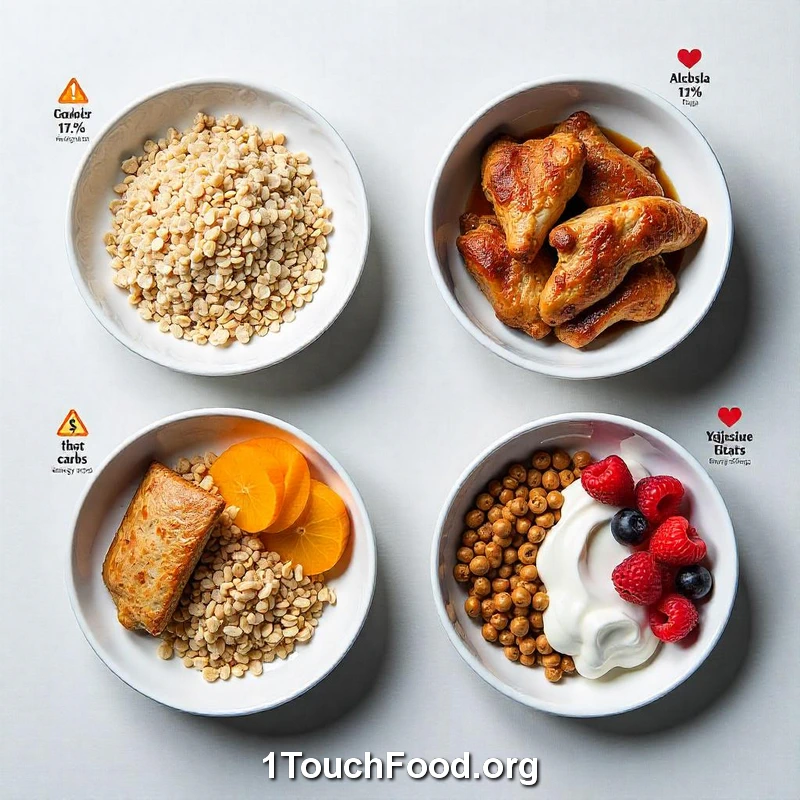
Comparing Popular Pre Workout Snacks for Endurance
When it comes to optimizing your endurance performance, not all snacks are equally effective. Choosing the right fuel requires a careful comparison of macronutrient profiles, digestion rates, and energy delivery. In this section, we’ll compare popular pre workout snacks for endurance to help you make informed, performance-boosting choices.
🥗 Snack Comparison Table: Energy, Digestion, and Endurance Impact
| Snack Option | Slow Digesting Carbs | Protein | Time Before Workout | Energy Duration | Digestion Comfort |
|---|---|---|---|---|---|
| Oatmeal with almond butter & banana | ✅ High | ✅ Moderate | 60–90 minutes | 🌟🌟🌟🌟🌟 | ✅ Easy |
| Brown rice with chicken & steamed veggies | ✅ Very High | ✅ High | 2–3 hours | 🌟🌟🌟🌟🌟 | ⚠️ Moderate |
| Whole grain toast with avocado & boiled egg | ✅ Moderate | ✅ Moderate | 60–90 minutes | 🌟🌟🌟🌟 | ✅ Easy |
| Energy bar with dried fruits & nuts | ⚠️ Mixed | ✅ Low | 30–60 minutes | 🌟🌟🌟 | ⚠️ May cause bloat |
| Greek yogurt with berries & chia seeds | ✅ Moderate | ✅ High | 45–60 minutes | 🌟🌟🌟🌟 | ✅ Easy |
| Banana with peanut butter | ⚠️ Fast-moderate | ✅ Low | 30–60 minutes | 🌟🌟🌟 | ✅ Easy |
Key Takeaways:
-
Oatmeal-based snacks offer top-tier slow-digesting carbs and sustained energy.
-
Rice or quinoa meals are best when eaten further in advance (2–3 hrs).
-
Bars and bananas are useful for quick energy but may not sustain very long workouts.
-
Hydration matters: Consider pairing snacks with water or coconut water for electrolyte balance.
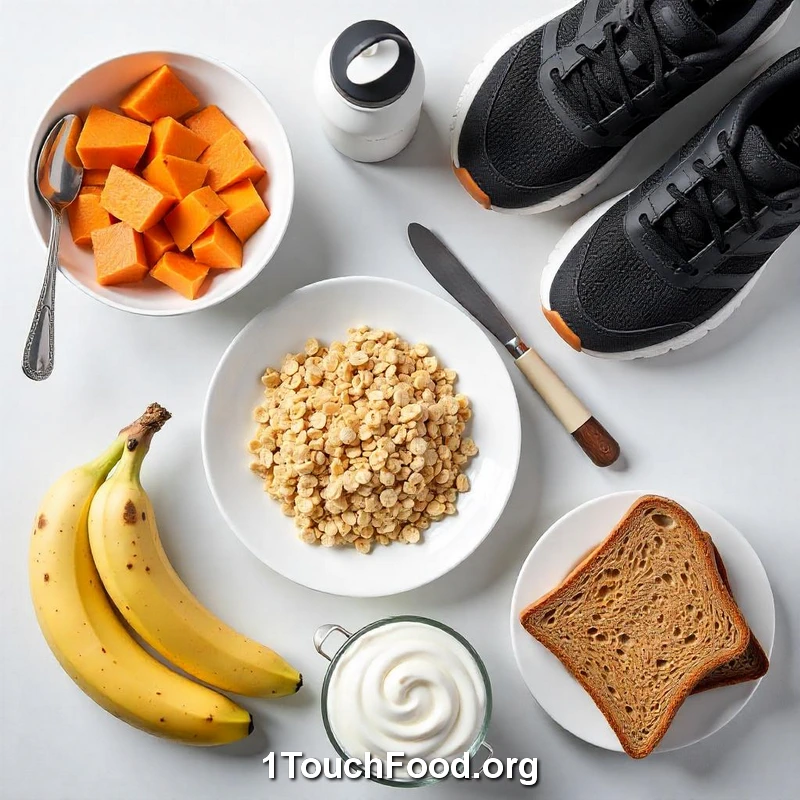
How to Plan Your Pre Workout Nutrition for Maximum Endurance
The most effective endurance athletes treat nutrition like part of their training. Planning your pre workout snacks for endurance ahead of time helps avoid last-minute mistakes that could hinder your performance. Follow this guide to create a personalized fueling strategy.
🗓️ 1. Identify Your Workout Type and Duration
Ask yourself:
-
Is it a short run (<1 hour)?
➤ Light carb-rich snack 30–60 mins before is fine. -
Is it a long endurance session (90 mins or more)?
➤ Slow-digesting carb meal or snack 1.5–3 hours before is ideal.
🕒 2. Time It Right
Use the timing guidelines below to avoid sluggishness or hunger:
-
2–3 hours before: Full meal (e.g., brown rice, lean protein, veggies)
-
1–1.5 hours before: Balanced snack (e.g., oats with berries)
-
30–45 mins before: Simple carb snack (e.g., banana or toast)
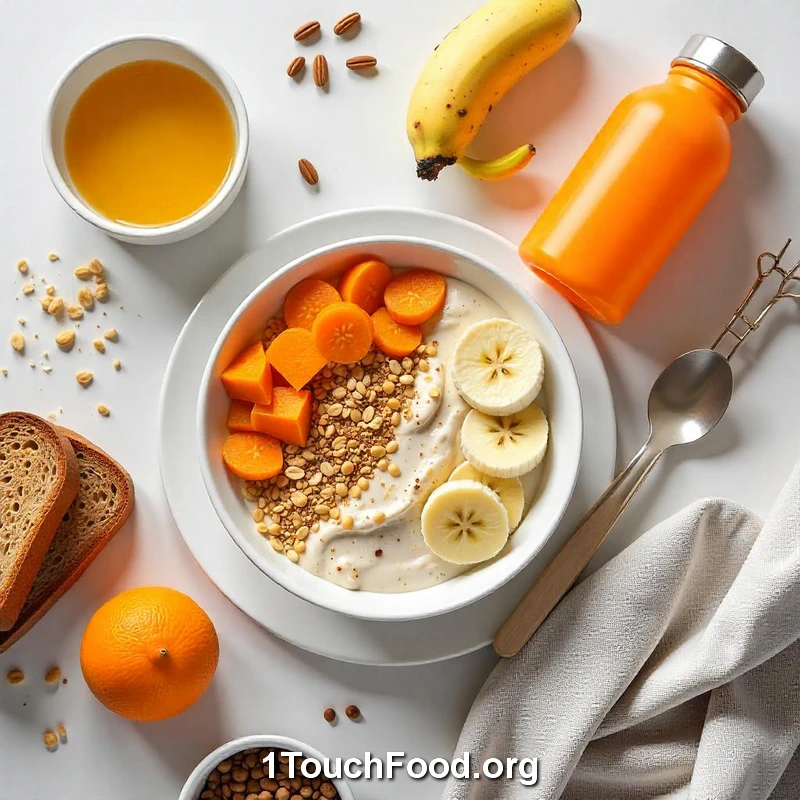
🍽 3. Choose Your Carbs Wisely
Always prioritize low-glycemic, slow digesting carbs. These provide long-term fuel and protect muscle glycogen.
✅ Choose:
-
Sweet potatoes
-
Quinoa
-
Rolled oats
-
Whole grain bread
-
Chickpeas
🚫 Avoid:
-
Candy, sugary drinks, white bread, pastries (cause energy crashes)
🧪 4. Test Your Snack Plan
Don’t try a new snack on race day! Test during training to see how your body responds. Consider:
-
How long the snack keeps you full
-
If it causes any GI discomfort
-
If your energy sustains throughout the workout
💧 5. Pair Food with Fluids
Hydration is critical. Follow this hydration guide:
-
2–3 hrs before: 500–600 ml of water
-
30 mins before: 250–300 ml water or electrolyte drink
-
During workout (if over 60 mins): 150–200 ml every 20 minutes
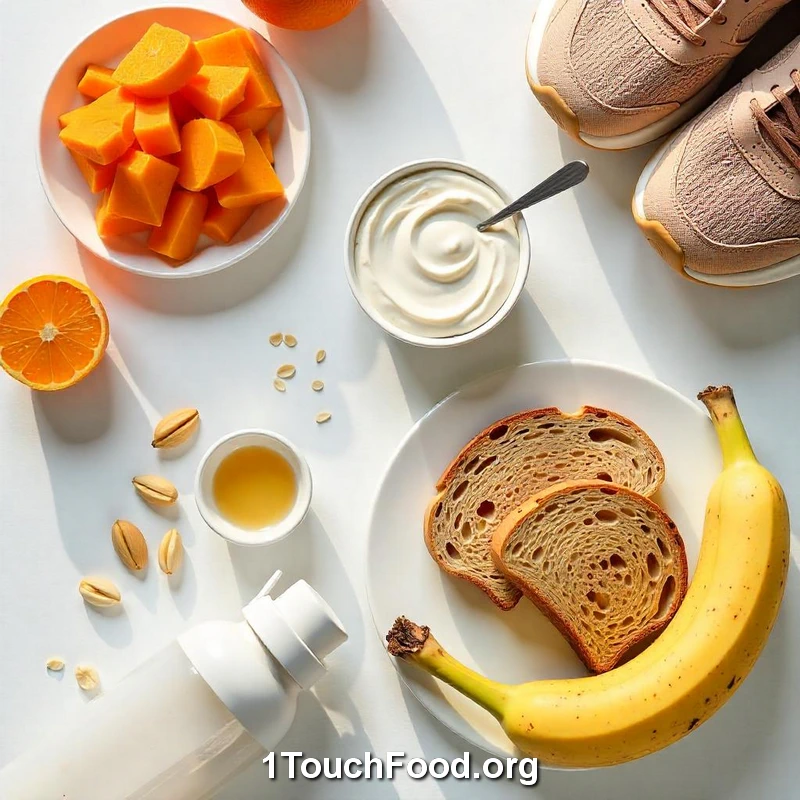
FAQs about Pre Workout Snacks for Endurance
❓ What should I avoid eating before an endurance workout?
Avoid high-fat, fried, or fiber-heavy foods like bacon, cheese, or raw broccoli before workouts. These can slow digestion and cause cramps or bloating.
❓ How far in advance should I eat my snack?
For optimal performance, eat:
-
A large meal: 2–3 hours before
-
A snack: 45–90 minutes before
-
A very small snack (like a banana): 30 minutes before
❓ Can I drink coffee with my pre workout snack?
Yes! Moderate caffeine can enhance focus and stamina. Just avoid sweetened lattes or heavy cream. Black coffee or green tea 30–45 mins before can be helpful.
❓ Should I include protein in my snack?
Including some protein (like Greek yogurt, egg, or a protein smoothie) helps preserve muscle during long endurance workouts and improves recovery.
❓ Are fruits enough as a pre workout snack?
Fruits like bananas or apples are a good quick carb source but may not last through long sessions. Pair them with oats, nut butter, or yogurt for better endurance support.
Conclusion: Fueling for Success with the Right Pre Workout Snacks
If endurance is your goal, what you eat before you train is just as important as how you train. The best pre workout snacks for endurance contain slow digesting carbs, a bit of protein, and are timed to support optimal energy levels. Whether you’re running a half marathon or pushing through a 2-hour cycle, your fuel will determine your performance, stamina, and recovery.
By selecting the right ingredients, following proper timing, and customizing your snacks to your training needs, you’ll set yourself up for consistent and powerful athletic performance.
Enjoy! See our youtube. Quench your thirst and revitalize your body with our collection of refreshing and hydrating recipes. All athletes must pay close attention to their nutrition to achieve optimal performance. You can see CookBook for athletes and Building a Bigger Butt. Its very useful for athletes.


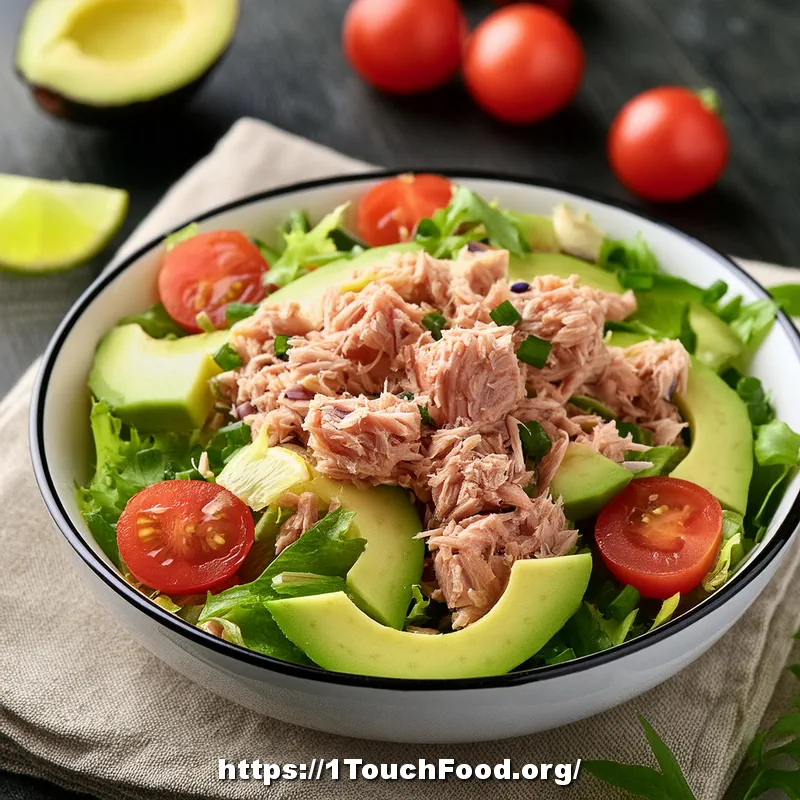


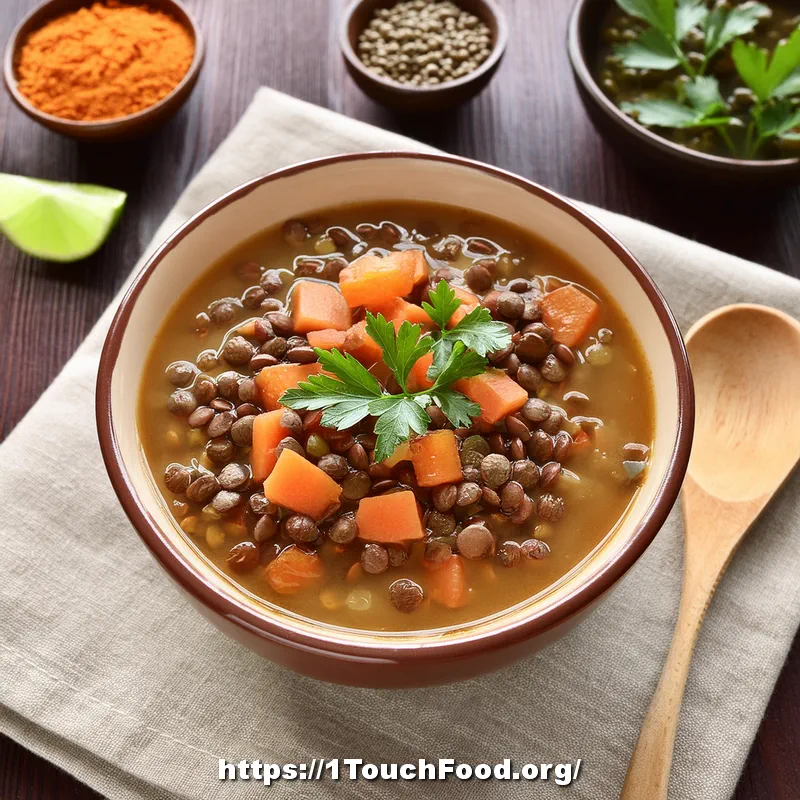







Leave a Reply